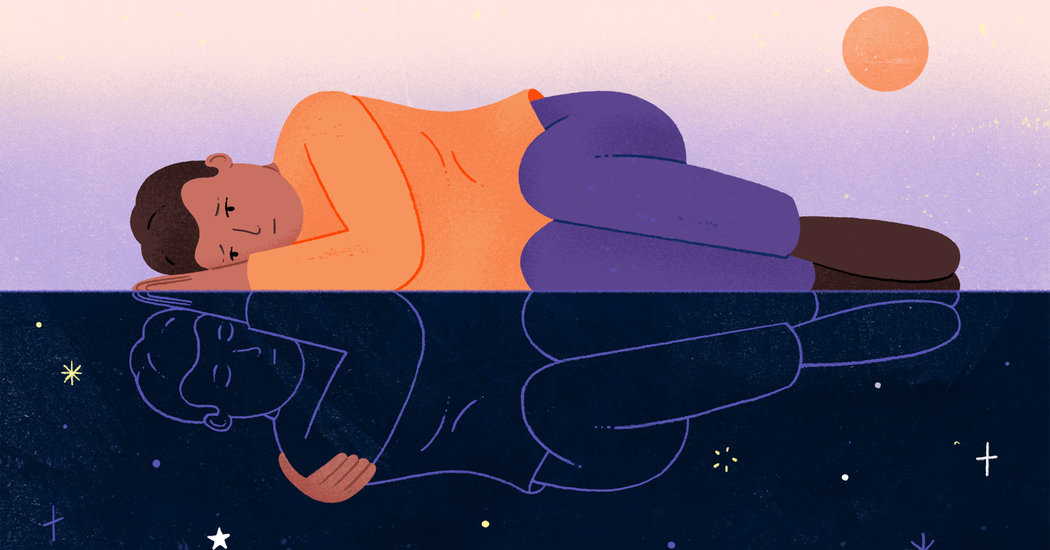
Since my cancer diagnosis, I have lived intimately with thoughts of death. Cancer patients of all ages and stages, as well as people with other ruinous conditions, often experience “a double frame of mind,” as the polemicist Christopher Hitchens once put it. Laboring to survive in the present, we simultaneously imagine our future demise. Of course, feelings and beliefs about mortality range widely. But a number of thinkers have set out to help those who suspect that introspection about this state of mind may be the most important work we can undertake.
If you want to evaluate your own perspective on death, try filling in the Death Attitude Profile — Revised questionnaire developed by the psychologists Paul T.P. Wong, Gary T. Reker and Gina Gesser. A series of 32 propositions, the survey measures death anxiety: worries about self-loss, , missed opportunities, stolen moments, the prospect of your or your survivors’ suffering, the unknown. It also gauges death acceptance: satisfaction at having led a good life, at acknowledging a natural ending, at escaping physical pain or gaining a desirable afterlife or merging with the cosmos.
When my husband and I compared our responses to this test, what struck me was how complicated we all are. The prospect of my own death arouses more fright in me than his does in him, but he is more convinced than I that death is a grim experience. What, then, do the psychologists really tell us? After taking the quiz, the palliative care nurse Sallie Tisdale found her score was “all over the place, internally contradictory.”
To encourage people to ponder their own extinction, Ms. Tisdale, the author of “Advice for Future Corpses (and Those Who Love Them),” recommends the Japanese film “After Life.” In a posthumous state, the dead in this movie pick a single memory in which to live forever. With delicacy, its director, Hirokazu Kore-eda, implicitly asks, what memory would you choose?
This is a difficult assignment for me. Should I choose a joyous holiday get-together with the extended family? Well, those events often disintegrated into mayhem. Maybe I should select the occasion of a professional success. Unfortunately, those moments were often fraught with tension. Besides, do I believe in an afterlife?
Yet watching the movie and considering its premise — or reading Ms. Tisdale’s book or taking the questionnaire — equip the mind with the doubled frames through which many imperiled patients view the world. Not unlike the double consciousness W.E.B. DuBois ascribed to African-Americans, the double consciousness that I experience can devolve into debilitating self-division. However, it can also evolve into an intoxicating clarification of the human condition.
The drawbacks of living in the present with corrosive dread about a diminished or canceled future seem abundantly clear. When the substance of the everyday is drained of reality, leached by visions of impending debilitation and disappearance, double consciousness leads to depression.
As fatigue or nausea take over, I am torn asunder by the morbid conviction that this might very well be the last time I travel, that soon I won’t have the strength to prepare the meal that I am cooking or rise from the bed I am making. Will I survive long enough to finish the next project? Worse, why start the next project, if it cannot be completed? Riven by contrary impulses, I want to live today, but trepidations about tomorrow render the present flimsy or vacuous. Intimations of mortality rob us of confidence in our autonomy before the dying process finishes that job.
One coping route involves tackling the logistics of the looming loss: obtaining a will, signing advance directives, deciding how and where to dispose of the remains, composing letters to survivors or an obituary. Such efforts — focusing the mind on our perishable bodies — rarely erase dread. Yet they make good use of time, conferring upon us the dignity of taking actions within perilous circumstances.
Sophie Sabbage, the author of “The Cancer Whisperer,” is hardly the sole survivor who believes that dying should be “the first thing to come to terms with when you’re diagnosed with cancer, not the last.” She goes on to explain that “We cannot control what happens to us, but we can control how we perceive what happens and how we choose to respond.”
Taking seriously such an insight entails making meaning from unavoidable truths. Most religions — Buddhism, Judaism, Christianity, Islam — encourage believers to contemplate the dust we will become, to deliberate on the Latin phrase memento mori, meaning “remember you must die.” Endangered patients have a head start on the steep fork in the road of memento mori, which (as my mom used to say) is not for patsies, though a glimpse of its scenery turns out to be breathtaking.
For at higher altitudes, intimations of tomorrow’s mortality can shrink today’s fatigue and nausea into trifles or oddly into exultant evidence that, hey, I’m not dead yet! Some find that the darkness of the future heightens the brightness of the present. If this is the last time I will travel or cook or get out of the bed, I will relish the experience to its fullest. Others discover in an awareness of death the potency of their own integrity. If the next project might not be finished, I will pursue it just as I see fit, according to my own eccentric standards.
Patients lucky enough not to be obliterated by pain can learn to balance on the precarious edge of the discerned present and an incalculable future. No longer an ailment, double consciousness becomes a vertiginous high-wire act.
Personally, I shift from negative to positive modes of double consciousness, and back again, in the passage of time it took you to read these words. It doesn’t make me the easiest individual in the world to hang out with.
Susan Gubar, who has been dealing with ovarian cancer since 2008, is distinguished emerita professor of English at Indiana University. Her latest book is “Late-Life Love.”

